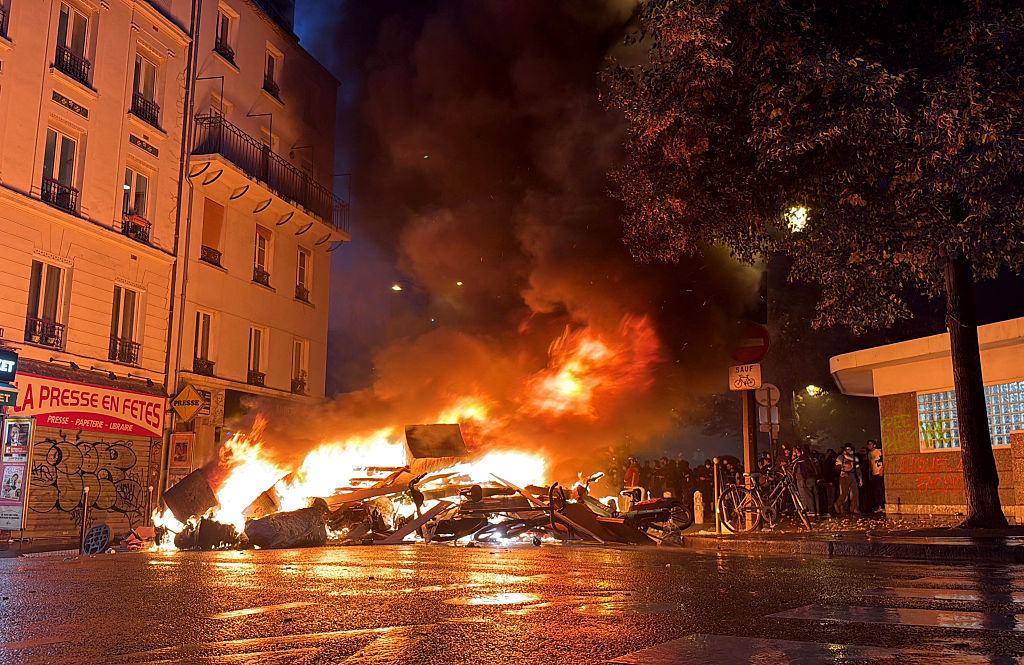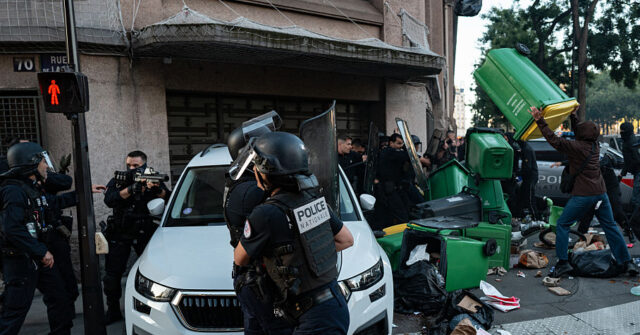The French government celebrated having put down nationwide strikes and roadblocks with 80,000 police in a day which saw hundreds of arrests, but fewer activists on the streets and less anti-state action than organisers hoped for.
The Bloquons tout (‘Block everything’) movement took to the streets to protest against the French government under President Emmanuel Macron, which they believe is not left-wing enough, the day after the country got its third Prime Minister in a year. The appointment of Sébastien Lecornu came just 24 hours after erstwhile government leader François Bayrou was ousted, unable to pass a controversial budget combining spending cuts with tax rises to tackle the nation’s parlous fiscal state.
The rapid turnover of Prime Ministers — Macron has had seven so far — underlines the fundamental ungovernability of France, whose politics is divided between a large number of radically opposed parties, divided on what to do as the money runs out.
In Paris, France, on September 10, 2025, tens of thousands of demonstrators participate in the ‘Bloquons Tout’ movement to protest against the austerity measures announced for the 2026 budget and to denounce Emmanuel Macron’s policies. Several gatherings and demonstrations take place in different parts of the capital, punctuated by tensions with the police, and a building is on fire. (Photo by Jerome Gilles/NurPhoto via Getty Images)
The Minister of the Interior Bruno Retailleau hailed the success of the deployment of tens of thousands of police nationwide, saying the government had successfully defeated “those who wanted to block the country”, and that this had been achieved “thanks to the police”. Government figures released on Wednesday evening state 473 arrests had taken place nationwide at 550 protests and 262 blockades.
267 fires were extinguished and the government estimated 175,000 participants, somewhat less than the 250,000 claimed to have attended by left-wing unions supporting the protests.
The day of protest involved regular demonstrations, but more crucially saw a call to block roads, rail, and airports nationwide. Supporters were told not to turn up to work and not to spend any money during the day to paralyse both the state and commerce. Yet despite a day of very real travel chaos across the country, broadsheet Le Figaro notes fears of a general strike were overblown, with some 95 per cent of state employees having been recorded of having turned up for work.
Several motorways were blockaded, leading to clashes with police attempting to clear the roads. Across the railway network, an arson attack called a “malicious act that damaged cables” prevented rail travel on the line between Toulouse and Auch, already a well rehearsed favourite technique of the hard left in Europe. Elsewhere, tracks were blockaded with “occupations” at Valnce-Ville, and there was sabotage against signalling equipment in Auguillon.
Police repelled attempted station invasions by activists in Paris, Montpellier, and Marseille. Airports were also disrupted, with hundreds of flights cancelled and more delayed.

A fire set by protesters blocks a street near the Place des Fetes, during a demonstration as part of the “Bloquons tout” (“Let’s block everything”) protest movement, in Paris, on September 10, 2025. The broad anti-government campaign, dubbed “Bloquons tout” (“Let’s block everything”), calls for a a shutdown of France on September 10 with a string of protest actions and civil disobedience around the country, while the handover of power between the new Prime Minister and his predecessor, who suffered a crushing loss in a confidence vote on September 8, is scheduled for the same day at noon. (Photo by Aurore MESENGE / AFP) (Photo by AURORE MESENGE/AFP via Getty Images)
Read the full article here
